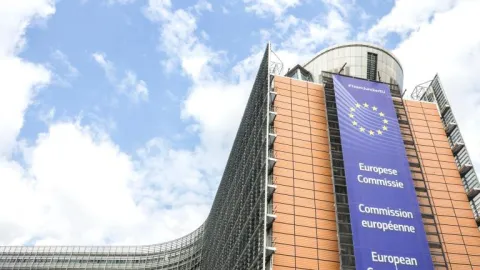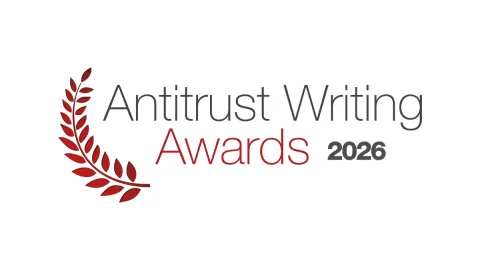Brazil Seeks to Amend its Competition Law: A Regulatory Model à la Allemande
October 20, 2025
The Brazilian Federal Government proposed to the Brazilian Congress on the 17th of September an amendment to its competition law regime via Bill No. 4675/2025 (the Bill). In essence, the proposed Bill introduces new procedures into the competition law regime to address the competitive problems taking place in digital markets. Although the Brazilian amendment is not big and beautiful, it comes within an economic context where it is facing 50% tariffs on its exports to the US. The Bill is, however, the culmination of a legislative process (and back-and-forth) that has seen many twists and turns since 2022, when the first iteration of the regulatory efforts addressing digital market power where hinted at by the Brazilian Government.
Distancing itself from the DMA’s regulatory model, the Brazilian bill approximates its idea of a digital regulation by taking the German, British, and Japanese regulatory efforts as a blueprint to design the reform of its own competition regime. This post explains the tenets of the proposed bill and its many consequences on the broader context where digital platforms are de lege lata being regulated in other corners of the World.
The apple does not fall far from the tree
In 2022, the Brazilian Government proposed a first draft of its idea for regulating digital markets in the country (see Parisi’s comment on Bill 2768/2022). The proposed legislation defined ‘essential access control power holders’ as the regulatory targets that were subject to a list of obligations. In that instance, the telecoms authority (ANATEL) would take charge of securing the regulation’s enforcement, since it would not be integrated into the country’s competition policy strategy. The criteria for designation, as most authors commented at the time, were unclear and risked to over-designate platforms that did not hold such a crucial role in holding economic power within the Brazilian economic reality. Criticism against the proposed legislation also included a lack of clarity of its objectives and its separation from the competition law regime.
Following such a backlash, the proposed legislation was stalled before the Brazilian legislature (for comment on the legislative process, see here), and the regulatory efforts went into disarray. Two years later, on 2024, the Ministry of Finance launched a public consultation to re-evaluate whether a legislative amendment to the Brazilian competition law regime would be more adequate to tackle the failure of its application at the level of the competition authority (Conselho Administrativo de Defesa Econômica or CADE). Different stakeholders and concerned undertakings responded to the public consultation (to learn about those, see here), including CADE. It defended that it should assume the role of a regulator in digital markets since it would be best position to tackle the problems arising from these markets, by assuming a complementary role to its enforcement of antitrust.
In light of the contributions to the public consultation, the Ministry of Finance issued its report with two main recommendations highlighting its remarks. First, it pointed to the need to improve the competition framework, to provide CADE with fast and timely prevention instruments to deal with the specific dynamics of digital markets. Second, such a task should take the form of new types of procedures and a unit (within CADE) specialised in digital markets.
The Brazilian Bill delivers on all of these promises and establishes just that: an ex-ante regime focusing on the economic and competitive aspects of digital platforms in charge of a new Superintendence within CADE’s organisational structure, to be considered as an additional strand of its competition law. As a matter of fact, the Bill amends the Brazilian competition law (Law No. 12,529 of 30 November 2011). In this sense, the Brazilian Bill is not a standalone regulation as the DMA is facing new institutional, procedural, and substantial challenges, since it still must define itself regarding the applicability of most of the antitrust principles spanning procedure and substance. Rather, the Bill is both constrained by the applicable case law in CADE’s antitrust enforcement, but organically distinct from the strict legal requirements it imposes to construe a sound theory of harm backed by economic and legal reasoning. This is both an advantage and a disadvantage, since CADE will not have the Herculean task ahead of itself to redefine the notions and procedures of a new ex-ante regime, but it bears Damocles’ sword of an antitrust enforcement riddled by the consumer welfare standard.
An asymmetrical regulation for designation and a non-exhaustive list of obligations
The Bill builds on the asymmetrical tradition that any digital regulation (in the form of an amendment to a competition law regime or a separate legislation) introduces, the asymmetrical design. Some economic agents will be singled out by the Superintendence of Digital Markets due to their scale and relevance in the Brazilian territory. Those economic operators will be designated as ‘economic agents with a systemic relevance in digital markets’, bearing in mind both quantitative and qualitative criteria. Undertakings surpassing global revenues amounting to 50 billion reais (approximately EUR 8 billion) or with annual revenues in Brazil exceeding 5 billion reais (roughly, EUR 800 million) may be subject to designation. That is, the quantitative criteria act as a precondition to designation, excluding any undertaking with a lower turnover. For those economic operators with higher revenues, CADE will then designate them based on qualitative criteria, notably their presence in one or more multi-sided markets, their network effects, their strategic position for the development of the business activities of third parties, or their access to a significant amount of relevant personal and commercial data (Article 47-C of the Bill).
Once the Superintendence operates the designation, the economic agent with systemic relevance will remain designated for a minimum of 10 years for all of its services (Article 87-A§1 and §2). As opposed to the DMA or the Japanese MSCA, the Brazilian Bill proposes a designation that covers the whole economic group to which the designated economic agent belongs. It will only be later on that the Superintendence will specify what services will remain subject to the obligations set out by the Bill via further specification through a code of conduct (as pointed out by CADE Commissioner Fernandes in a recent interview). The Bill does not, however, point out a category/ies of services which stand at the forefront of CADE’s priorities when enforcing the new rules.
Once the designation is operated, it will be up to the Superintendence to determine what obligations must apply to each designated economic agent. In other words, the designation does not operate any automatic consequence for the regulatory targets. Article 47-E lists a whole range of obligations that these economic agents may face if the Superintendence manages to justify their necessity via sound economic reasoning (Article 87-B§1). The list includes the following remedies:
| Obligation in Brazilian bill | DMA equivalents (or other jurisdictions) |
| Article 47-E.I: obligation to notify concentrations. | Article 14 DMA: obligation to notify all transactions. |
| Article 47-E.II: obligation to disclose relevant information about the supply and use of products and services (i.e., conditions on the collection and processing of data, criteria for ranking and displaying offers on search results and pricing structure, remuneration and fees for products and services). | None from DMA, but Articles 7, 9 and 10 Japanese MSCA. |
| Article 47-E.III: obligation to inform of changes in the terms of use of the services or products offered. | None from DMA, but Article 13 MSCA. |
| Article 47-E.IV.a) and b): prohibitions of excluding competitors and limiting access to inputs. | None (antitrust tradition). |
| Article 47-E.IV.c): prohibition of favouring own services to the detriment of competitors, including use of data from business users. | Articles 6(5) on self-preferencing and Article 6(2) on use of non-public data for competing with business users. |
| Article 47-E.IV.d): prohibition of linking the acquisition of a product or service to the acquisition of another. | None (antitrust tradition). |
| Article 47-E.IV.e): prohibition of limiting or preventing access to products or services offered by third parties. | Through broad interpretation, Articles 6(3) on default settings and 6(4) on alternative distribution of apps and app stores. |
| Article 47-E.IV.f): prohibition of restricting access to business information relevant to offering of products and services. | Articles 6(10) on access to business user data. |
| Article 47-E.IV.g): prohibition of hindering, by contractual or technical restrictions, offering of products directly to end users or access through other channels. | Article 5(4) on steering of end users. |
| Article 47-E.IV.h): prohibition of predatory or abusive strategies in relation to business or end users. | Through broad interpretation, Article 6(12) on FRAND-like obligations to access certain services. |
| Article 47-E.V.a): obligation to offer free data transfer tools to end users. | Article 6(9) on real-time data portability. |
| Article 47-E.V.b): obligation to offer mechanisms for free and effective interoperability. | Articles 6(7) on vertical interoperability and Article 7 on horizontal interoperability. |
| Article 47-E.V.c): allowing installation and use of applications of third parties. | Article 6(4) on alternative app distribution. |
| Article 47-E.V.d): enabling to business users of access to aggregated and non-aggregated data and tools for measuring the performance of its products, services or offers. | Articles 5(9) and 5(10) on advertising services, and Article 6(10) more generally. |
| Article 47-E.V.e): provision of options to change default settings for services and products, including installing or uninstalling applications. | Article 6(3) on default settings and uninstallation of non-essential services. |
| Article 47-E.V.f): ensure adaptation periods due to changes in terms of use of products and services offered. | None from DMA, but Article 13 MSCA. |
| Article 47-E.V.g): establish effective mechanisms and processes to deal with complaints and disputes from end and business users. | Article 5(6) on handling of complaints. |
| Article 47-E.V.h): offering of products and services under accessible and non-discriminatory conditions. | Article 6(12) on FRAND-like conditions for certain services. |
Although the list under Article 47-E may provide a hint of the priorities that CADE may have in drawing up the remedies for tackling the problems it may identify within these digital platforms. One cannot simply assume that these remedies stand as a closed list of provisions that every designated economic agent must face. The Superintendence may propose other solutions (since the list provides examples, as recognised by the Brazilian legislator) to CADE’s Tribunal (equivalent to its Council taking the decisions) (Article 87-B§4). Once those are imposed, different designated economic agents will be forced to submit their compliance reports before CADE, despite the fact that their frequency and details may differ depending on the operator concerned (Article 87-H§1).
The economic (or otherwise) justification to be provided by the Superintendence to propose the imposition of these remedies upon the economic agents will be inspired by the objectives of the amendment, mentioned under Article 47-B. According to the Bill, the protection and promotion of competition in digital markets shall be guided by three main principles: i) the reduction of barriers to entry; ii) the protection of the competitive process; and iii) the promotion of freedom of choice. An avid reader would, therefore, derive that CADE’s new Superintendence will identify first those segments of the whole array of digital markets facing high barriers to entry and tackle those first. Since the amendment does not narrow down the services to be taken into account by the regulator, those obligations may be imposed on the widely recognised services that any other regulator has engaged with (i.e., operating systems, app stores, and search engines) or with state-of-the-art technologies like AI, which is, inherently, a digital service.
Key takeaways
Brazil’s proposed amendment to its competition law represents a decisive step in aligning its regulatory framework with global trends in digital markets while preserving its own institutional and economic specificities. Unlike the EU’s DMA, the Brazilian Bill does not create a standalone regime; instead, it strengthens CADE’s capacity with ex-ante instruments, balancing antitrust principles with forward-looking regulatory tools.
The asymmetrical designation system and open-ended list of obligations offer flexibility to address market realities as they evolve, though they also leave room for legal uncertainty and potential fragmentation in enforcement. By granting CADE’s new Superintendence significant discretion in shaping remedies, Brazil bets on a context-sensitive approach, grounded in domestic economic dynamics but informed by comparative models such as Germany, Japan, and the UK.
Ultimately, the reform illustrates a middle path: embedding digital regulation within competition law to avoid institutional overlap, while equipping CADE with powers to act more swiftly in fast-moving markets. If effectively implemented, the Brazilian Bill could provide a pragmatic alternative for jurisdictions seeking to regulate digital platforms without the rigidity of prescriptive frameworks like the DMA. Its success, however, will depend on CADE’s ability to apply sound economic reasoning, resist capture, and maintain coherence with established antitrust case law.
The Brazilian Bill to regulate digital markets offers little diversity in the moves, as Thoinot Arbeau termed the Renaissance allemande.
_________
The author wishes to thank Rafael Rossini Parisi for his comments on a first draft of the piece. All errors remain the author's.
You may also like








